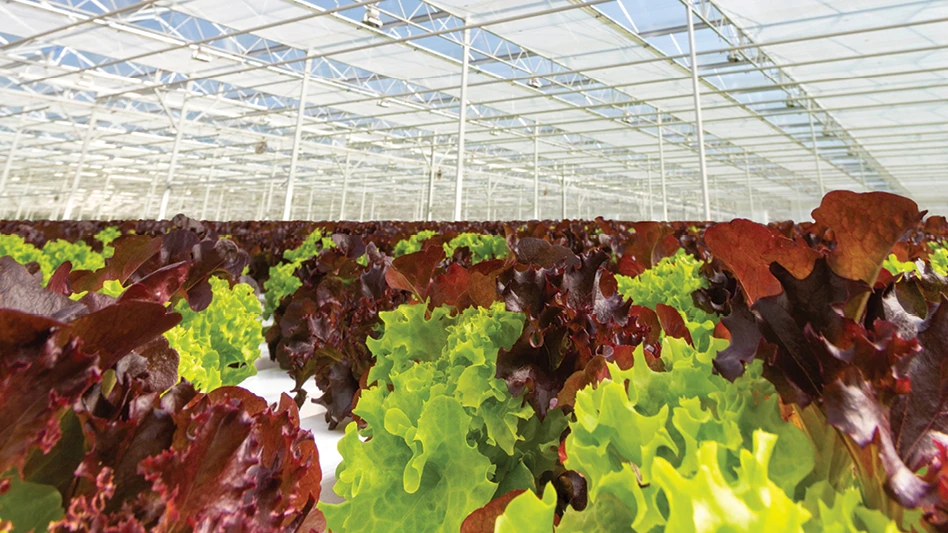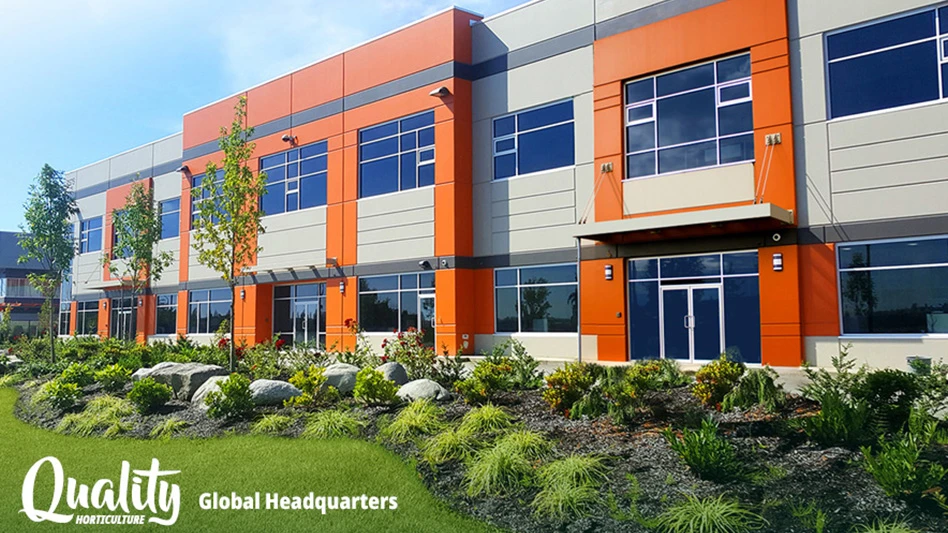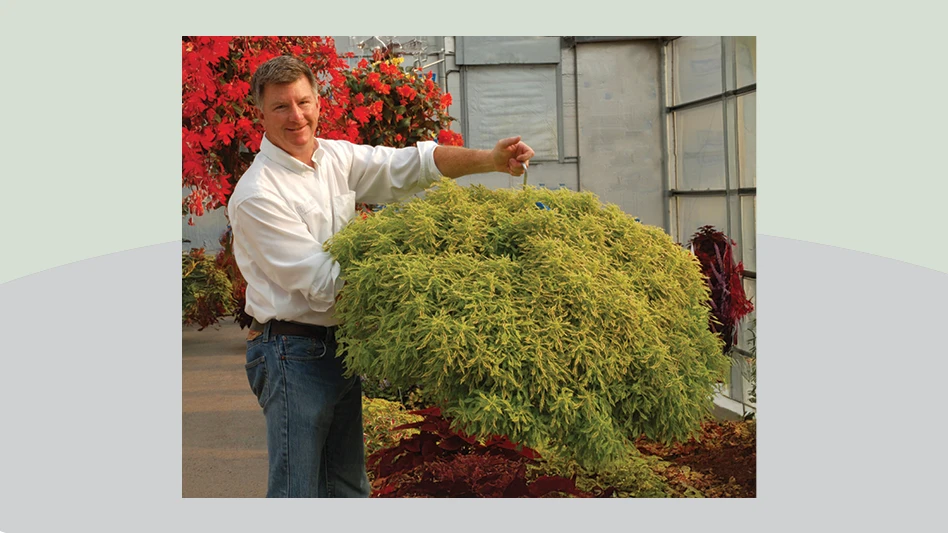 Mark Clemmons, corporate head grower at Seville Farms, travels to the California pack trials each year and works closely with the Dallas Arboretum trial gardens to find the best genetics each year. From breeders to botanical gardens to its own backyard, Seville Farms in Lillian, Texas, uses a number of sources to select new plants. The list of new varieties available each year is a dizzying one, but Seville is diligent and judicious with its choices.
Mark Clemmons, corporate head grower at Seville Farms, travels to the California pack trials each year and works closely with the Dallas Arboretum trial gardens to find the best genetics each year. From breeders to botanical gardens to its own backyard, Seville Farms in Lillian, Texas, uses a number of sources to select new plants. The list of new varieties available each year is a dizzying one, but Seville is diligent and judicious with its choices.
Corporate head grower Mark Clemmons travels to the California spring trials each year. He sees beyond the hype and scrutinizes a plant for improved genetics. Is it easy to grow? What’s its habit? Is it heat and drought tolerant?
Clemmons’ considerable experience pays off for his customers — the big box stores, regional chains and independent garden centers — and the end consumer.
What grows well in Big D
Closer to home, Clemmons works directly with Jimmy Turner, senior director of gardens at the Dallas Arboretum. Turner’s trials identify the best heat- and drought-tolerant plants being released on the market. The arboretum trial site on average receives more than 60 days of 100°F+ temperatures, with nighttime temperatures in the 80s during the summer.
“I work very closely with Mark, who’s one of the best growers in the state,” Turner said. “Seville is a big supporter of the trials, and Mark makes a point to see what we’re growing and what I like.
“Not only does he look for the best heat- and drought-tolerant varieties here, but he also gives us advice about growing. He’s got the knack.”
Seville Farms also trials plants at several of its locations.
Reducing inputs
 Plant pathologist Ann Chase and Clemmons work together throughout the year. Plant pathologist Ann Chase and Clemmons work together throughout the year. |
 Seville is enjoying success with selling Asiatic lilies in the fall. Seville is enjoying success with selling Asiatic lilies in the fall. |
Sustainability is nothing new at Seville.
“Things we do that are labeled ‘sustainable’ are what we do for best management practices,” Clemmons said.
Seville uses booms in some facilities to cut back on water use. The grower reduces liquid fertilizer applications by incorporating slow-release fertilizers into the growing media.
Seville also works with experts like plant pathologist Ann Chase of Chase Horticultural Research to minimize problems and keep the plants healthy. Because lower inputs make sense financially and environmentally, Seville’s supplier Syngenta Professional Products sometimes brings Chase to Texas for a consultation.
“The industry is certainly using better and safer products to fight diseases and pests,” Chase said. “But you’ve got to know what you’re dealing with before dumping any product on your plants. Don’t guess.”
Growing cool, saving energy
Seville significantly cut back on its heating bills a few years ago when it switched to cool-growing techniques. Besides fuel savings, growing cooler also reduces growth regulator applications and labor. The technique has proven to produce better plants, Clemmons said.
“Cool growing produces more compact plants, especially with cooler night temperatures,” he said.
Switching to cool growing only required Seville to make incremental changes, such as venting the greenhouses during part of the afternoon.
For a handful of plant species that don’t grow well in cooler temperatures, Seville can isolate those from the rest of the crops, Clemmons said.
Cool growing is also a helpful technique to stagger shipping dates and extend crop availability, said Paul Pilon, owner of Perennial Solutions Consulting, who also consults with Seville.
“Growers who have heated greenhouses, unheated quonsets and outdoor production space can really take advantage of cool growing,” Pilon said. “It’s a method to use all your environments more efficiently, especially when you have specific selling dates in mind.”
Cool growing allows a grower to produce a crop one-third of the time in a heated greenhouse, one-third in an unheated house and one-third outdoors, Pilon said. Plants such as primula, helleborus, brunnera and iberis are naturally cool crops, Pilon said.
|
||||
For more: Seville Farms, (817) 473-224. Dallas Arboretum Trial Gardens, www.dallasplanttrials.org. Ann Chase, Chase Horticultural Research, (530) 620-1624; www.chasehorticulturalresearch.com. Perennial Solutions Consulting, www.perennial-solutions.com.

Explore the October 2009 Issue
Check out more from this issue and find your next story to read.
Latest from Greenhouse Management
- North Carolina Nursery & Landscape Association announces new executive vice president
- Plant Development Services, Inc. unveils plant varieties debuting in 2025
- Promo kit available to celebrate first National Wave Day on May 3
- Applications now open for American Floral Endowment graduate scholarships
- Endless Summer Hydrangeas celebrates 20 years with community plantings
- Invest in silver
- Garden Center magazine announces dates for 2025 Garden Center Conference & Expo
- USDA launches $2 billion in aid for floriculture growers







